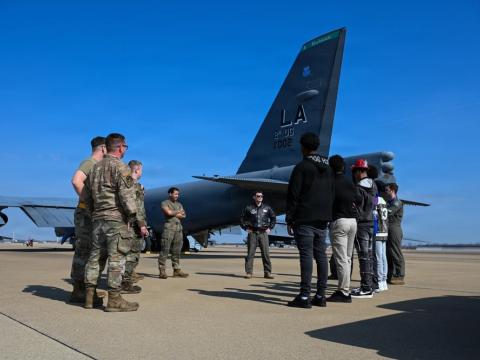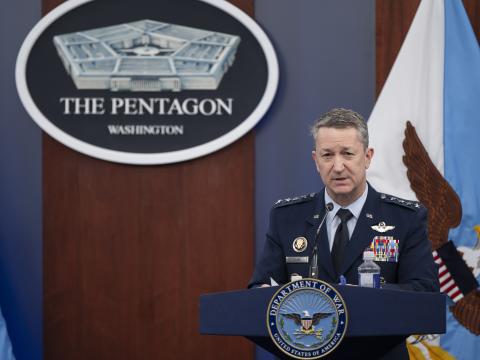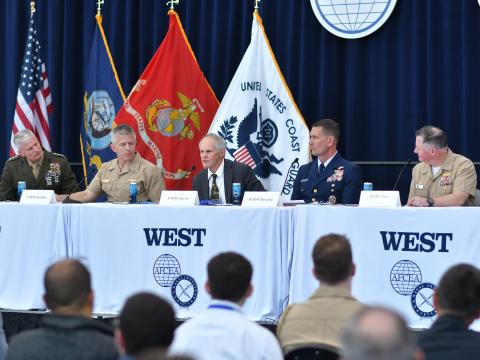Air Force Acquisition Leader Views the Future
Sharing her view on the future of the acquisition cycle, Theresa Terry, deputy undersecretary of the Air Force, management chief, does see improvements. To a certain extent, military acquisition offices are supporting innovative solicitation processes and are pursuing more meaningful industry engagement.
The acquisition leader said she sees a “significant” cultural shift in the Air Force acquisition community’s approach to industry relationships.
Terry spoke at the AFCEA Northern Virginia Chapter’s monthly luncheon on February 21.
“From what I see, the Air Force has done a really good job trying to be more interactive with industry,” Terry explained. “I’m watching that shift. We don't want to see you as vendors. We want to see you as partners, as you are helping us meet our mission.”
That emphasis started with previous Air Force acquisition heads who encouraged Terry and other officials to get out and speak more with private sector companies, she said.
Another new tool is the use of live request for information (RFI) events where industry can ask the officials direct questions near the start of the solicitation process.
“Have you tried a live RFI yet?” Terry asked the packed industry crowd. “It is game changing. We had a massive acquisition we were working on and knew there was going to be a million questions. We started getting into rooms—live or virtually—and responding to questions so everyone could hear the questions and the answers.”
The Air Force contracting office also began hosting events when drafting request for proposals (RFPs) documents.
“I do that live,” she explained. “I bring the documents up on the screen, and I make changes right on the spot. Obviously with a caveat that, ‘Hey, it's a draft and it's not approved yet, but let's work through these things together.’”
This novel process gives companies the chance to fully understand the wording and nuances of a solicitation document. “Do you know what the RFP says?” Terry said. “Do you understand what the [wording] means? And [for us], what words do we need to shift?”
The acquisition leader also acknowledged companies’ frustration with contacting the office. “I do encourage you to reach out to those contracting officers and mission partners,” Terry said. “I know it is frustrating. I know we don't answer the phone sometimes. And I know we give you a ‘yes’ or ‘no’ answer. But a lot of it is a time crunch. A lot of it is that we don't have enough people.”
And when companies do have a chance to speak with the officials, Terry offered advice.
“Our job is to connect you with that mission partner and have those conversations,” she said. “But as you are talking, make sure that your questions are meaningful. And please don't poke at other competitors. That is really distasteful. And be specific on how exactly are you going to meet our mission.”
The acquisition office is also spearheading efforts to rebrand category management within the Air Force, and Terry dispelled misconceptions about the impact on small businesses.
"With category management, I know there's a stigma around it that always hurts small business,” she said. “We keep hearing that over and over again, but in the Air Force, our small business numbers are continuing to increase. Category management does not mean a massive strategic source.”
The office is also working to significantly reduce the time it takes to conduct studies or analysis. “Has anybody ever heard of category and challenge reports?” Terry asked. “That old process took 18 months, and by the time we finished that report, what happened with that technology—it was obsolete. So, we are cutting that down.“
The office is cautiously considering how to leverage artificial intelligence (AI) in the acquisition process, starting with compliance. “We'd love to see how to use it, and if nothing else, I would love to start by doing compliance with AI. But you know, AI is not perfect, and what happens if it's not perfect? What does that mean for you, the industry? What does that mean for us?”
In addition, the contracting official emphasized that continuing to learn about capabilities and industry solutions is crucial for the office.
“Market research is one of my favorite things,” Terry shared.




Comments